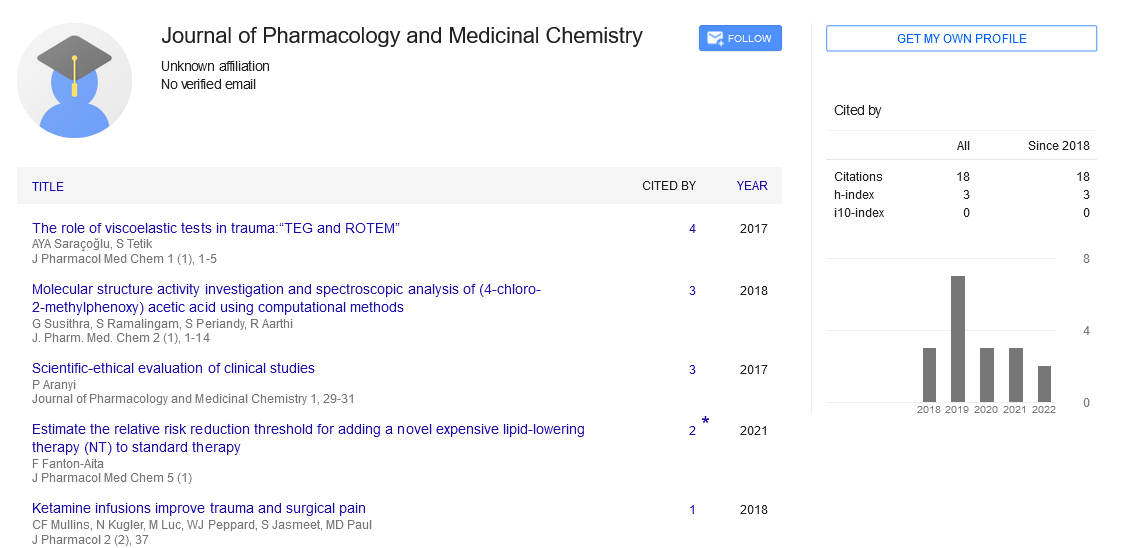Assessment of cell viability in an astrocyte cell line exposed to amyloid beta peptide and Fasudil
2 Department of Medical Pharmacology, Faculty of Medicine, Sanko University, Gaziantep, Turkey
Received: 26-Feb-2019 Accepted Date: Mar 07, 2019; Published: 13-Mar-2019
Citation: Yener B, Benlier N, Çicek H. Assessment of cell viability in an astrocytecell line exposed to amyloid beta peptide and Fasudil. J Pharmacol Res2019;3(1):1-4.
This open-access article is distributed under the terms of the Creative Commons Attribution Non-Commercial License (CC BY-NC) (http://creativecommons.org/licenses/by-nc/4.0/), which permits reuse, distribution and reproduction of the article, provided that the original work is properly cited and the reuse is restricted to noncommercial purposes. For commercial reuse, contact reprints@pulsus.com
Abstract
Background: Amyloid beta (Aβ) is a protein of 40-42 aminoacids that are crucially involved in Alzheimer’s disease as the main component of amyloid plaques. Rho-kinase is believed to be involved in the regulation of stress fiber formation, smooth muscle contraction, cell migration and proliferation. Rho-kinase inhibition results in reduced inflammatory response. Fasudil is a ROCK inhibitor. In the present study, we aimed to evaluate cell viability in an astrocyte cell line treated with amyloid beta peptide and fasudil.
Methods and results: C8-D1A (a murine astrocyte cell line) was used to construct a neurotoxicity model induced by Aβ peptide. Astrocyte cells were divided into 2 groups including control and amyloid beta groups and incubated with 5 μM amyloid beta for 24 hours. A separate group was treated with 2.5 μM dose of Fasudil, a Rho-kinase inhibitor, and photographs of the resulting cell samples were taken with 40X magnification objective of the inverted microscope.
A marked increase in cell loss was observed in the group exposed to 5 μM Aβ after incubation in comparison to control group (p<0.001). Fasudil was found to prevent cell loss considerably in the group treated with Fasudil 2.5 μM and Aβ compared to the group treated with Aβ alone (p<0.001).
Conclusion: In the present study, we found that Aβ caused abundant cell death in the murine C8-D1A astrocyte cell line and Fasudil effectively prevented cell loss induced by amyloid beta.





